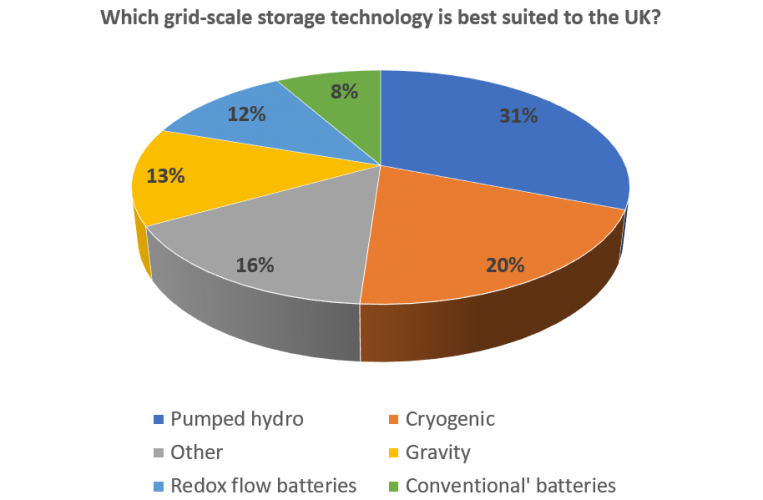Last week's poll: UK grid-scale storage
On the back of the announcement of a new 50 MW/250 MWh cryogenic energy storage plant for northern England, we asked readers of The Engineer which type of grid-scale storage they favoured for the UK.


There are several possible technologies available or in development:
How pumped hydro storage can help save the planet
Highview Power to build Europe’s largest energy storage plant
Despite some of the challenges the technology faces, pumped hydro was the most popular option amongst our readers, garnering 31 per cent of the vote. Cryogenic grid-scale storage came in second with 20 per cent. Just 8 per cent felt lithium-ion batteries were the best fit for the UK, with readers slightly more convinced by redox flow battery technology (12 per cent). Gravity-based systems were backed by 13 per cent of respondents, while 16 per cent chose the 'other' option.
"Cryogenic storage is very promising and well worth developing," wrote Jack Broughton. "However, pumped storage is the only proven large scale system of those listed, for GWh level storage.
Register now to continue reading
Thanks for visiting The Engineer. You’ve now reached your monthly limit of news stories. Register for free to unlock unlimited access to all of our news coverage, as well as premium content including opinion, in-depth features and special reports.
Benefits of registering
-
In-depth insights and coverage of key emerging trends
-
Unrestricted access to special reports throughout the year
-
Daily technology news delivered straight to your inbox










Water Sector Talent Exodus Could Cripple The Sector
Maybe if things are essential for the running of a country and we want to pay a fair price we should be running these utilities on a not for profit...